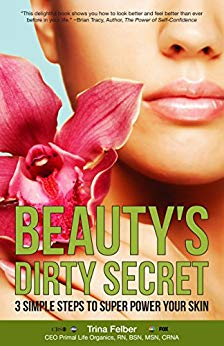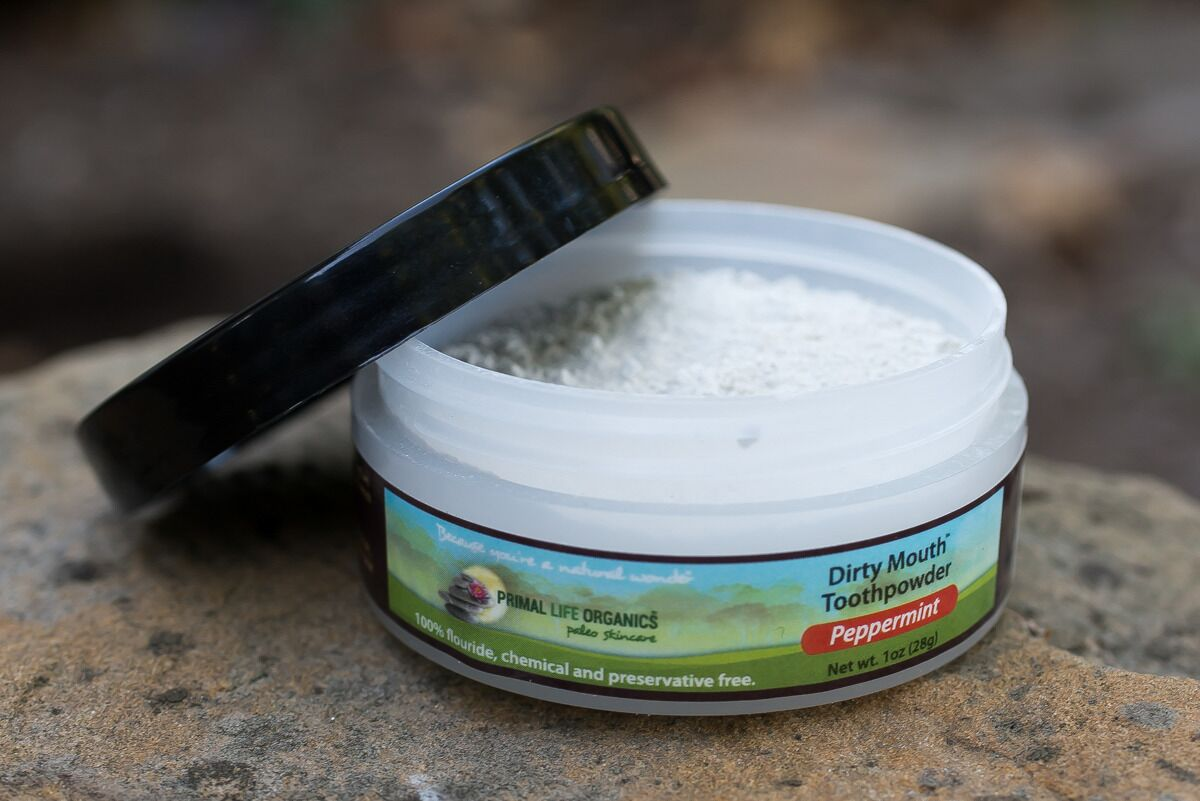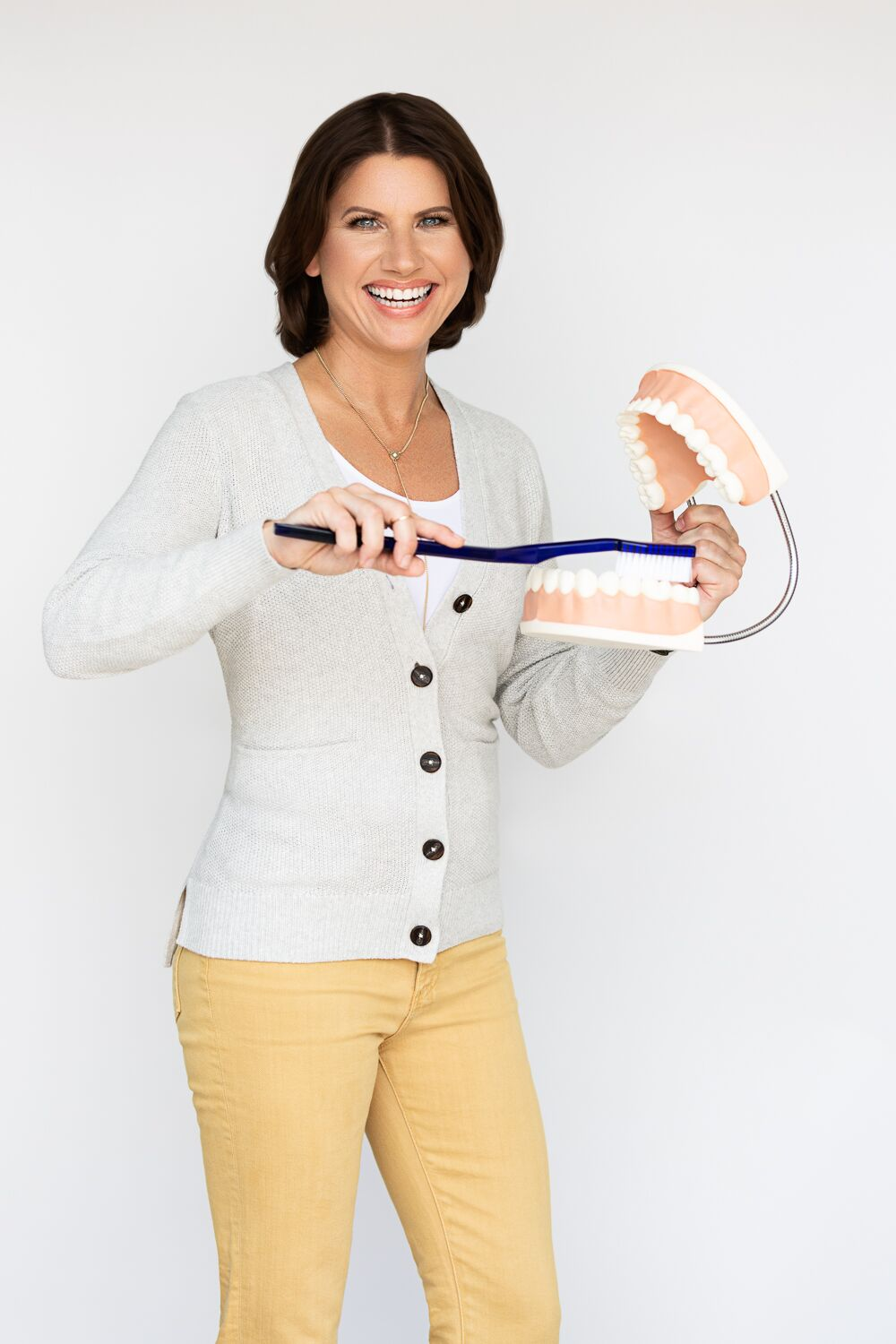From Struggling to Success: The Unusual Rebrand that Turned This Ecommerce Startup Around
This is the first in our series How We Made It In Ecommerce. Check out the other episodes here.
Triumphant Trina outside her business premises
What do you do when you suspect the skincare companies you trusted are actively harming your health? For Trina Felber, the answer was obvious: start a skincare company of your own.
“I’m an all or nothing kind of girl,” she says. “When I jump in, I jump in with two feet and two hands, 120 percent. So I literally ditched all my skincare and just started making my own products from scratch.”
Her brand, Primal Life Organics, boasted a $4.7 M revenue in 2017, with a three-year growth of 487 percent, earning her a spot on the Inc 5000 fastest growing companies.
Felber now has more than 20 employees. But she never imagined that life would lead her here.
Felber spent most of her adult life working as a nurse. At age 40, just after getting her Master’s degree in anesthesia, she discovered a welcome surprise: she had unexpectedly gotten pregnant in record time while on her honeymoon in Fiji.
She headed back to the States with her husband, excited to face this new chapter in life. But her future was not going to be that simple. “I was seven weeks pregnant,” she says, “and I suffered a miscarriage.”
Thanks to her nursing experience, she knew there could be a biological reason behind it. While some people might have simply tried to forget such a devastating setback and move on, Felber was determined to find the cause.
When she was seven weeks into a new pregnancy, at the same point when she’d miscarried before, something on the label of a skincare product caught her eye.
“I glanced down at my moisturizer that I was getting ready to put on my face, and I started reading the ingredients,” she recalls. Although it was a natural, organic skincare line -- a brand she trusted -- the ingredients list was filled with things that sounded toxic.
Suspecting that these skincare products were the cause of her miscarriage, Felber immediately trashed them all and started making her own. When she researched the suspicious ingredients on the Environmental Working Group’s website, she found that her concerns were valid. The “natural” skincare products she’d once used contained hidden endocrine disruptors, neurotoxins, and carcinogens.
Trina’s twins--the inspiration for starting her line of non-toxic products.
From Nurse to CEOFelber’s commitment to sharing what she’d learned made entrepreneurship the logical next step. She was the quintessential bootstrapper, starting in her kitchen with no outside capital, making just one or two products at a time.
“I was smart enough to put on the website that it’s made fresh when ordered, so it could take two weeks to ship your order,” she says. She invested her own money in her website, products, and ingredients.
However, not having capital also meant that every dime the business made had to go right back into the business. “For probably the first year and a half to two years, I didn’t pay myself,” Felber adds. Instead, she used the money to do things like upgrade labels and buy new inventory.
Trina in the early days of the business. She made each product after it was ordered.
Felber’s relaxed confidence when she talks about her brand makes building a company sound simple. However, her entrepreneurial journey wasn’t such a straight shot.
When she initially launched the business, in 2009, she named it Olive’s Organic Botanicals.
However, she soon realized that the skincare market was already flooded with organic options. “I was out there in this big blue ocean of organic skincare -- and I did pretty good,” Felber recalls. But the brand didn’t quite take off the way she’d hoped.
About a year later, her husband introduced her to the Paleo diet. First designed in the 1970s, this diet strategy maintains that eating the way early humans in the Paleolithic age did is the key to health.
Paleo eaters avoid processed grains, dairy, and anything else developed after the rise of agriculture, sticking to meats and unprocessed plants instead. In 2010, these diets were just starting to become popular again among health enthusiasts.
Like many budding companies, Felber’s brand had struggled because it didn’t have a focused niche. Realizing that she had a Paleo product, Felber did a quick Google search for Paleo skincare. Nothing came up, except a brief thread on a single website, which suggested using coconut oil.
“A lightbulb went off in my head,” Felber says. “I said ‘You know what? I have the answer for you -- my skincare’s Paleo.’” She’d finally found her niche.
As soon as she could, she relaunched her business as Primal Life Organics. Her first employee was actually the nanny she’d hired to help out with her three young children. When the kids went down for their daily nap, the two worked side by side to build the brand.
“I basically created my own ocean,” she says. Instead of swimming in the vast pool of organic skincare, she now had a specific focus: people who wanted Paleo products to fit their Paleo lifestyle. “And that is what turned my company around.”
At the time of the rebrand, Primal Life Organics was the first and only Paleo skincare line on the market -- and it remains the most popular one to this day.
As the brand grew, Felber started learning how to better focus her marketing tactics. At first, she reached her customers using organic strategies, like podcasts and emails. But in just a few short years, the methods for building traffic became drastically different, with the rise of paid posts.
“Things have changed,” Felber says. “You have to know what you’re doing -- you have to have the resources to put money into it in order to get money out of it.” Luckily, Felber’s husband has the marketing expertise to run her social media campaigns. In addition to Facebook ads, the brand uses Instagram, Twitter, and Pinterest; email marketing; and a few sales funnels.
Although Felber isn’t doing the marketing all by herself, she still takes a very hands-on approach. She writes content for her website’s blog, speaks at Paleo events, and even published an international bestseller: Beauty’s Dirty Secret, available on Amazon.

She also does a lot of podcasts, interviews, and Facebook Live videos, where her warm, gregarious nature shines.
“I like [Live videos] because, of all the skincare companies in the world, I don’t see any other skincare company’s CEO -- the owner of the company -- getting on Facebook Live and answering questions for people,” Felber says. Even in the age of ecommerce, the importance of personally connecting with your customers remains.
She recognizes that her nursing background strengthens her ability to build trust with customers. “The way I was brought up as a nurse was to be able to communicate to the patient in a way that they can understand.”
These communication skills carry over into her entrepreneurial career, as she teaches people how to use her products to live their best lives.
For Felber, connecting with customers was always the easy part. But nailing down the best tools and technologies for her brand posed a bigger challenge. Today, she names using an inventory management system as one of the keys to success. “I’m a products-based business,” she says. “It’s the life or death of my company.”
Another key for success is maintaining focus. “When I started, I made a ton of products -- I wanted to solve everybody’s problem,” she says. But when Primal Life Organics streamlined its offerings, the brand became more successful. “We actually cut about half of our inventory, because we couldn’t focus.”
Felber notes that about 80 to 90 percent of a brand’s income usually comes from just 10 to 20 percent of its products. She recommends focusing on those products that truly generate the income, and getting rid of the rest -- even if a few customers miss those products.
Streamlining has allowed Felber to invest in new brand goals, like retail and local marketing. With its shorter list of products, Primal Life Organics will soon appear on the shelves of some big-name stores. However, the Shopify store remains the core of the business.
The original website required HTML coding, but Felber found that Shopify did everything she needed with a lot less work. A user-friendly platform that minimizes setup time helps aspiring entrepreneurs get off the ground.
Felber also recommends taking the time to hire the right people, so you can minimize the need for outsourcing. “Bringing it in-house has its own value, because [your employees] know your culture, they get to work side-by-side with you, as opposed to outsourcing something.” She loves hiring people who have healthy desires to learn, instead of only hiring those who already have certain skill-sets.
Even as the owner of a thriving brand, Felber still turns to her community of fellow entrepreneurs for camaraderie and problem-solving. “Sometimes [the] answer just isn’t black-and-white, it’s more gray,” she says. Fellow entrepreneurs can often suggest the right solution or someone who can help.

Felber herself has plenty of advice for aspiring entrepreneurs. She strongly recommends getting the trademarks or patents needed to protect your products and company.
But the biggest challenge faced by new entrepreneurs, Felber believes, is building the brand itself. It’s simple to start a Facebook page or build a Shopify store, but the hard part is figuring out your message.
How can you nail down that message? She recommends taking a couple hours to ask yourself, “What is my mission? What is my message? And how can I convey that to my people?”
Once you attract a few people who get your message, they’ll bring in even more people who that message resonates with, she adds. “But you have to know who you are and what your message is to attract those people.”
For Felber, Primal Life Organics is more than a skincare brand -- it’s a community of like-minded people who love helping each other out. “I always say that this is an extension of my nursing career,” she says. “I loved nursing because I got to take care of people and help them get better. And by providing healthy products, I’m able to do that now across the world.”

She also loves the other perks of being a business owner, like having the freedom to travel, attend new events, and work from anywhere.
Her children and husband often travel with her, and they’re attentive to health on every level, from diet to meditation to, of course, skincare. “We really do live the lifestyle that we have built, that I talk about, and that I try to help people achieve on their own.”
Her final words of wisdom for aspiring entrepreneurs? “Don’t give up! It’s tough out there sometimes.” But even if she knew ahead of time about all the challenges she’d face, Felber says she’d go back and do it all again. “My life is better serving the people that I serve right now.”
By Elyse Hauser. Elyse writes for Capital & Growth and is an aspiring novelist.



